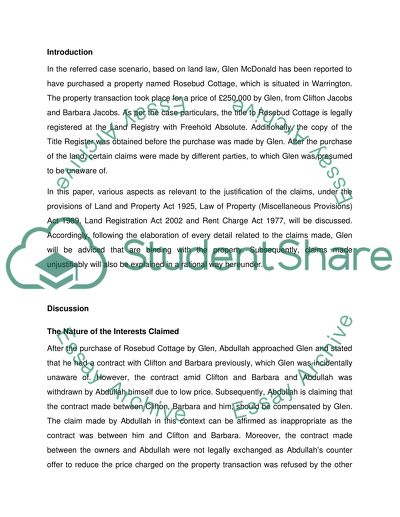Cite this document
(“Land law Essay Example | Topics and Well Written Essays - 1500 words - 5”, n.d.)
Land law Essay Example | Topics and Well Written Essays - 1500 words - 5. Retrieved from https://studentshare.org/law/1489590-land-law
Land law Essay Example | Topics and Well Written Essays - 1500 words - 5. Retrieved from https://studentshare.org/law/1489590-land-law
(Land Law Essay Example | Topics and Well Written Essays - 1500 Words - 5)
Land Law Essay Example | Topics and Well Written Essays - 1500 Words - 5. https://studentshare.org/law/1489590-land-law.
Land Law Essay Example | Topics and Well Written Essays - 1500 Words - 5. https://studentshare.org/law/1489590-land-law.
“Land Law Essay Example | Topics and Well Written Essays - 1500 Words - 5”, n.d. https://studentshare.org/law/1489590-land-law.


